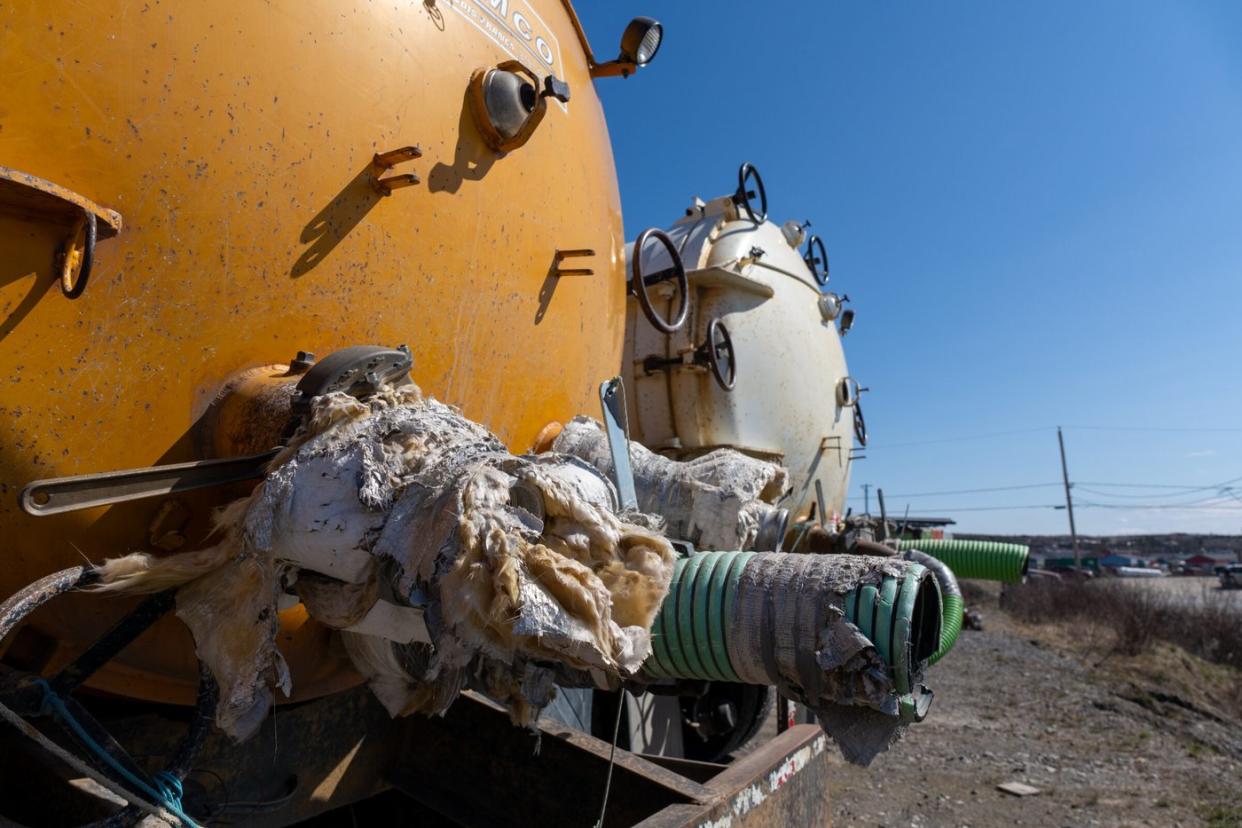Nunavik villages lack reliable access to water, causing health centre and school closures

Water and sewage issues are leading to health centre and school closures in multiple Nunavik communities.
Inukjuak, Akulivik, Puvirnituq and Aupaluk in particular “face significant issues” in the supply of potable water, causing a “breakdown in educational services,” said Harriet Keleutak, executive director of Kativik Ilisarniliriniq, in a statement provided May 8 to Nunatsiaq News in French.
When water or sewage services are interrupted for more than two hours, she said, the schools must close.
Kativik Regional Government does not have detailed data on the number of school closures directly related to access to water and sewage services, but is aware this “remains a real issue,” said spokesperson Joseph Denis-Pelletier in a statement.
Problems include broken water and sewer trucks and, in one case, a non-functioning water treatment plant.
In Aupaluk, water is taken directly from the lake and delivered to the community. That community is currently under a boil-water advisory.
The problem in Inukjuak largely comes down to access to working water and sewage trucks, said Mayor Pauloosie Kasudluak.
“In the last four years, we have been struggling to keep up with the service in the community,” he said.
Kasudluak said Inukjuak resolved issues it faced earlier this month by fixing a broken water truck, one of three in the community.
“Mechanics are hard to find,” he said, adding this problem is further complicated by how long it can take for parts to arrive.
Winter conditions also interfere with the supply of services, Kasudluak said, because Inukjuak does not have sufficient snow removal equipment.
“If the sewage truck has to go to the lagoon, which is pretty far from the community, we have to clear the snow from the road to the lagoon which takes a lot of time,” he said.
Kasudluak said KRG funds water and sewer trucks, but does not provide enough money.
“The community is growing, buildings are being built, and they require our services,” he said. “We are not getting any upgrades on our service equipment.”
Amélie Desjardins Tessier is a family physician and public health adviser at the Nunavik Regional Board of Health and Social Services. She has been working with communities on their water and sewage issues for more than a year.
“Some weeks it goes well,” Desjardins Tessier said. “Other weeks not so much. Sometimes it’s one village, sometimes it’s another, and it is hard to follow and have information over where it is not working.”
She said the lack of water and sewage service affects health care. Even with antiseptic liquid to wash hands, doctors and nurses cannot clean a woman who just gave birth or someone with a trauma.
“We need water,” Desjardins Tessier said.
The problem also affects patients’ ability to use the washroom, take showers or complete other basic hygiene tasks.
All these issues affect staff retention. Desjardins Tessier said it’s difficult to live in conditions where access to a basic need like water can be uncertain.
“Since they have a choice, they don’t come to work here,” she said. “We have a staff problem, and this directly impacts health care.”
Puvirnituq’s health centre is unique in that there is a direct line that connects the facility to the community’s water treatment plant. (Issues do still arise from full sewage tanks, Desjardins Tessier said.)
That connection between the health centre and water plant has been the subject of conversation between Desjardins Tessier and most mayors in the region.
“If we were able to connect a few buildings like the health centre, the school, the daycare, the hotel, it would relieve a lot of pressure from the trucks and the workers,” she said.
“It would cost a lot less, and it would be the start of something… And that is an idea that comes directly from the villages.”
Kativik Regional Government declined Nunatsiaq News’ request for an interview. Instead, chairperson Hilda Snowball provided a statement.
“KRG offers technical assistance to the northern villages on how to keep equipment and services in the best condition possible,” she said. “It is up to each municipality to decide how best to use the support that KRG provides.”
Snowball added, “KRG, however, does not deliver municipal services; the Northern Villages do.”
Cedric Gallant, Local Journalism Initiative Reporter, Nunatsiaq News

